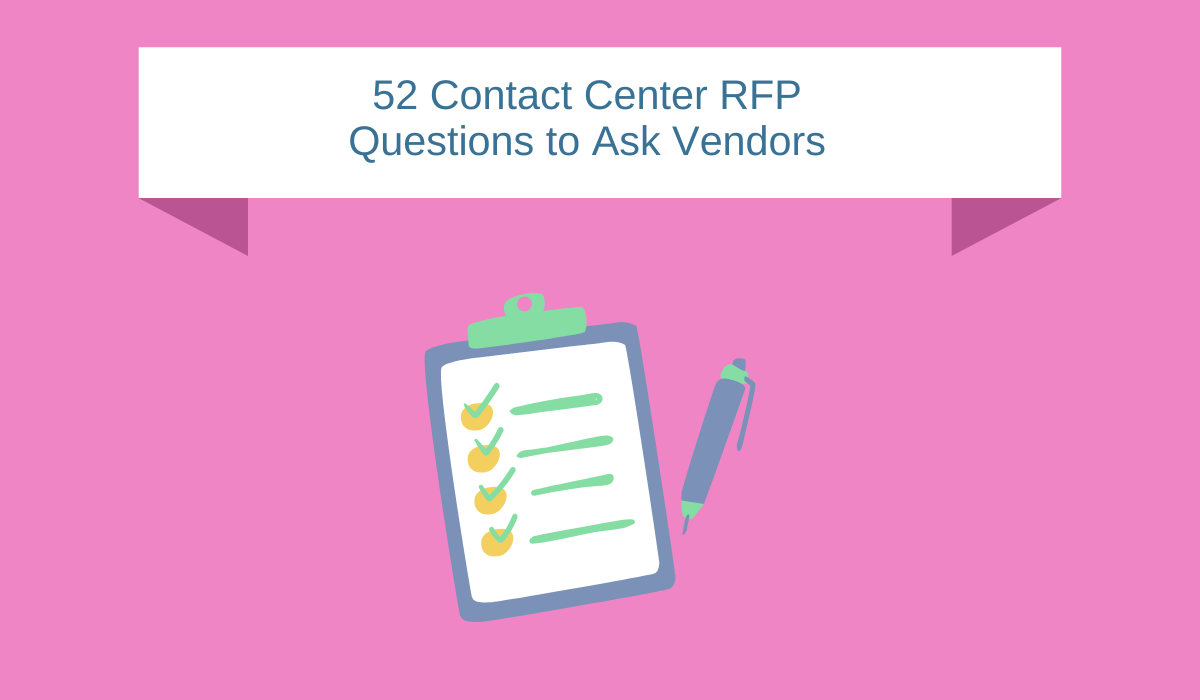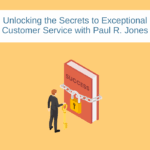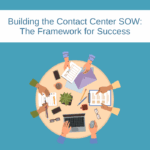52 Contact Center RFP Questions to Ask Vendors

Are you in the middle of “contact center RFP season”?
The RFP questions listed below provide you with a comprehensive guide on how you can structure the request and the actual questions you can add to your RFP. We segmented the questions into six key sections:
Company Overview
Get to know the history and organization of the vendor.
List Company Facts
- How long have you been in business?
- How many full-time employees do you have?
- How many physical centers do you operate? (List address & number of employees for each location)
- What percent of your workforce is remote/work-at-home?
- What languages do you currently support?
- What awards or recognition has your company received in the past three years?
Client Service
- What is the average length of your client relationships?
- Name your three largest clients, and list how long they have been clients.
- What percent of total annual revenue comes from your two largest clients?
- Do you serve any clients who would be considered a competitor to our company?
Culture
- Describe your corporate culture including how it is differentiated from your competition.
- Define your mission statement and company values.
- How does your corporate culture align with your understanding of our own company, values, and culture?
- What strategies have you deployed to maintain and nurture your culture with a mix of on-premises, remote, and/or hybrid employees?
- Describe your initiatives regarding diversity, equity, and inclusion within your organization. Detail roles and responsibilities, policies, and measurements.
- Provide any relevant ESG certification, rankings, or third-party verification.
Agent Workforce
Outsourcing customer interactions to a third party is a huge decision. Evaluating the agents employed by an outsourcer can be one of the most critical pieces to finding the right partner.
Labor Market
- Describe your primary labor market including post-secondary education rates and unemployment rates. What percentage of your employees live within an hour of your primary market?
- Describe your company’s competitive differentiators within your labor market.
- Outline your attraction and recruitment strategies, processes, and success measurements, including results for hiring for the past 12 months.
Agent Training
- Describe your training structure (team, facilities, Learning Management Systems, remote platforms, etc.) and outline your approach to new hire training.
- What is unique about your agent training regimen?
- What’s your maximum class training size for in-person training? For remote training?
- What percentage of new hires graduate from training to production?
- What percentage of agents are still with the company six months after graduating from training?
- How have you evolved your training program to accommodate remote and/or hybrid work environments?
- How do your success ratios differ in remote/hybrid work circumstances versus on-premises training?
- What ongoing developmental or career development training do you offer?
Agent Engagement
- What is your annual agent attrition rate companywide (list both voluntary and involuntary turnover numbers)?
- What are the attrition rates for the program that most resemble our requirements?
- Describe your employee engagement strategies and measurement processes. Provide detail on employee engagement results, companywide, for the past three years and for the program that most closely resembles our requirements in size and scope for the past 12 months.
- How have your employee engagement strategies evolved to support remote and/or hybrid work environments?
- What percentage of your new hires comes from employee referrals?
- What is your average tenure of salaried staff? Hourly staff?
Agent Profile
- How do you profile your agents and assess skills?
- What percent of agents have some post-secondary education?
Reporting
In this section, you want to find out how the vendor measures their call quality and what measurements they have used in the past. Standard call measures like average handling time, first call resolution, and conversion rate are important, but these numbers are likely to be similar across vendors. Also consider important big-picture measurements like agent attrition, forecasting, and process adherence. Call volume forecasting, if executed accurately, can greatly help your planning efforts and show the vendor’s forward-thinking attitude.
Capabilities and Experience in Information Services
- Describe your information services team including number of personnel, specializations.
- Provide an example of how you have used reporting to positively impact a client’s business.
- Do you offer conversational intelligence as a standard offering to clients? If yes, provide details on the platform, available insights, and reporting standards.
- What reports form the foundation of your quarterly business reviews?
- Who on your management team reviews client reports on a regular basis?
Reporting Customization and Client Access
- What custom reporting capabilities do you have?
- How do your clients access reporting in real-time or near real-time?
- Provide examples of standard and custom reporting.
Project Management
Your internal operations team will need to regularly interface with the vendor if they are chosen. For your benefit, you want to make sure that you have the right makeup of vendor project management resources to sync up with your internal team.
Set expectations about the staff that you want on your project. And ask the vendor to provide details about their approach to their client relationships. You want to make sure you’re getting a dedicated level of project management that is going to make the project work. The following questions could help you gain some of this information.
Team Commitment
- What percentage of the project manager(s)’s time will be dedicated to our project?
- Provide an organization chart and bios of senior leadership and program management resources who could be assigned to our program.
- What members of senior management are located on the same site as the location proposed for our program?
- Describe your governance model including details on senior management involvement on our account.
- What differentiators have contributed to your successful strategic partnerships and what gaps or barriers were contributing factors in your least successful?
Again, think about what’s important to you. For example, if your incumbent vendor has poor service or project management, you’ll want to make sure you’re covered here. And on the flipside, if you’re a first-time outsourcer, you’ll want to ensure your vendor’s internal operations and project management mirror yours.
Technology
Call center technology is continuously reaching new heights, and that means top outsourcers must be ready to adapt as new innovations come into play. Define your expectations regarding integration, listing out the technologies you are bringing to the table, including your CRM or CTI platform. Be specific in how you’d like the vendor to integrate with those technologies.
Be realistic about your risk tolerance. Dual redundancy might be your ideal scenario but be prepared to pay for it. If the vendor is expected to bolt onto your platform, indicate that in the contact center RFP.
Tech Compatibility
- Describe your experience integrating with the telephony and CRM/CTI systems described in our requirements.
- Detail your business continuity plans and redundancy practices.
- How do you support the remote and/or hybrid environment from a technology perspective?
- What options do you provide to clients for program-specific redundancy or contingency plans? (Provide details on which options are included in your pricing model.)
- Detail your ability to pivot from an in-office solution to a primarily remote solution and vice versa from a technology perspective.
AI
- Describe your current AI capabilities and services.
- How long have you been delivering AI solutions as part of your contact center services?
- If you are using conversational intelligence, describe the implementation, ingestion, and insight timeline for a new client. How long will it take for a new client to benefit from the machine-learning attributes of your system?
- What KPIs/metrics do you measure in tracking the effectiveness of your escalations from AI to live agents?
- What IT resources can you provide to support the migration and integration of AI into our customer service solutions?
- How do you measure the impact and effectiveness of your AI strategy?
- What steps do you take when outcomes of your AI strategy are falling short of expectations?
- What similar projects are you currently using AI technology for? What results have you seen?
Pricing
Keep in mind that every contact center prices their services differently. For this reason, you will benefit from providing specific scenarios (i.e. call volume) using the economic model you prefer, such as cost per call, cost per minute, cost per headcount, etc.
Pricing Models
- Detail one-time costs associated with startup.
- What is the estimated annual cost of the solution detailed in your proposal?
- Detail your pricing model by channel using the volumes and SLAs provided in this RFP.
- What services and features are included in this pricing? Include team/project management resources as well as technology and reporting.
- What performance guarantees are included in this pricing?
- Are there any volume discounts you can provide?
- Are licensing costs for all required platforms such as your conversational intelligence platform, and/or your telephony platform included? If not, please detail how direct costs are billed.
- Describe any risk/reward bonus-penalty structure you offer.
- If you were to suggest an alternative pricing model within the same volume parameters as the scenario provided, what would you suggest?
Comparability is important in this section. Always ask for a breakdown of their pricing and note features and services that one vendor may offer over another. As much as possible, you want an “apples-to-apples” comparison so you can make an accurate, fair evaluation.
What’s that you say? That’s more than 52 RFP questions? Surprise! We regularly update this list of contact center RFP questions to ensure they’re up to date with industry trends.
Whether you’re just starting your contact center RFP journey or you’ve been pulling your hair out trying to wrap up it before the end of the year, don’t fret. We’ve got you covered—just click here to request pricing and more info today.





